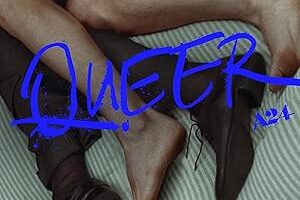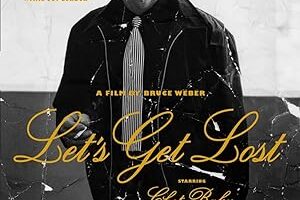Tropic Sprockets / The End Of The Tour
By Ian Brockway
The writer David Foster Wallace dedicated himself to portraying a fractured and nervous kind of reality, one governed by television media and machines. His novel Infinite Jest, an opus of one thousand pages, was critically praised but misunderstood by many, and left unread by more than a few.
Wallace, by most accounts, proved uncompromising with his very person. He was self deprecating, harsh and critical. Such aspects come across, and then some, in “The End of the Tour” by director James Ponsoldt.
In the film, Rolling Stone reporter David Lipsky (Jessie Eisenberg) is fed up with fluff articles and wants to do something big. Since Lipsky is a fan of Infinite Jest, he asks to do a piece on the author.
At the height of winter, Lipsky travels many miles to meet him in at a college town in central Illinois. A baggy clothed mushy man with stubble meets him in the snow. It is Wallace.
Though socially anxious, Wallace (Jason Segel) nonetheless makes an effort to be a good host. Tension begins. The author is suspicious of the reporter’s zest, and Lipsky doesn’t know how to go forward with the lit celebrity.
The two agree to dinner at a diner.
The pulse of this film is within the body of Jason Segel, who is primarily known for his comic roles. Rather than go for quirk, circumstance and odd laughs, Segel is quite interior, focused and intense. He captures wonderfully the rapid, yet stuttering and sometimes pained cadence that Wallace had in his few tv interviews. Within Segel’s pointed and poignant verbose drips, the wordy essence of the actual Wallace is here as a ghost in the flesh.
The story is no mere situational drama. This film is one where we actually get a sense, through words and gestures, of what it might feel like to create in writing, with all of the pushing and pulling and self doubt.
Through many car trips, the evasive author brings his defenses down and a rapport develops.
There are comic moments as the unkempt author shuffles into a strait-laced and immaculate bookstore, or the moment when the two face a conservative and super- cheery driver (Joan Cusack).
The core of the film though exists between Segel and Eisenberg together who go through the full range of emotion, from curiosity and hero-worship, to anxiety, duplicity and betrayal, only to come back full circle again as in the full scope of a friendship.
Rather than a conventional road trip film, this is a road film of emotion. In the hesitant threads of Jason Segel’s impassioned speech together with Eisenberg’s shock and passivity, the film creates a present day version of “Who’s Afraid of Virginia Woolf?” along with other character films of the 60s and 70s, when dialogue was king.
Rather than spilling the beans all at once, we learn of Wallace and Lipsky a bit at a time. The story unfolds like a mystery, as real life often does, given the variables of surprise and chance.
Above all, one truly gets a sensation of who these real life people were at the time. This is a rare thing.
While not a comic film, Segel, a former puppeteer, uses his big, lanky body to good effect in showing the spatial discomfort of this man. At the final scene, we see Segel’s Wallace dance wildly in a church hall, as if to portray the author restless and relentless in the attempt to unspool himself from media’s shackles and invite a Dionysus to take hold of him.
The last scenes of the two men leaving are all the more pensive with melancholy, since we know that Wallace committed suicide, presumably gripped by doubt and depression.
Although, this is a very sad finality, “The End of the Tour” is not a sad film. It is a portrait of a friendship.
Jessie Eisenberg is a kind of straight man, while Jason Segel is nothing less than a human marionette, bravely giving us a sample of David Foster Wallace as he once lived upon the earth—an inwardly spinning, often funny and exhaustive creature held together by the tangible and textured physicality of words.
[livemarket market_name="KONK Life LiveMarket" limit=3 category=“” show_signup=0 show_more=0]






No Comment